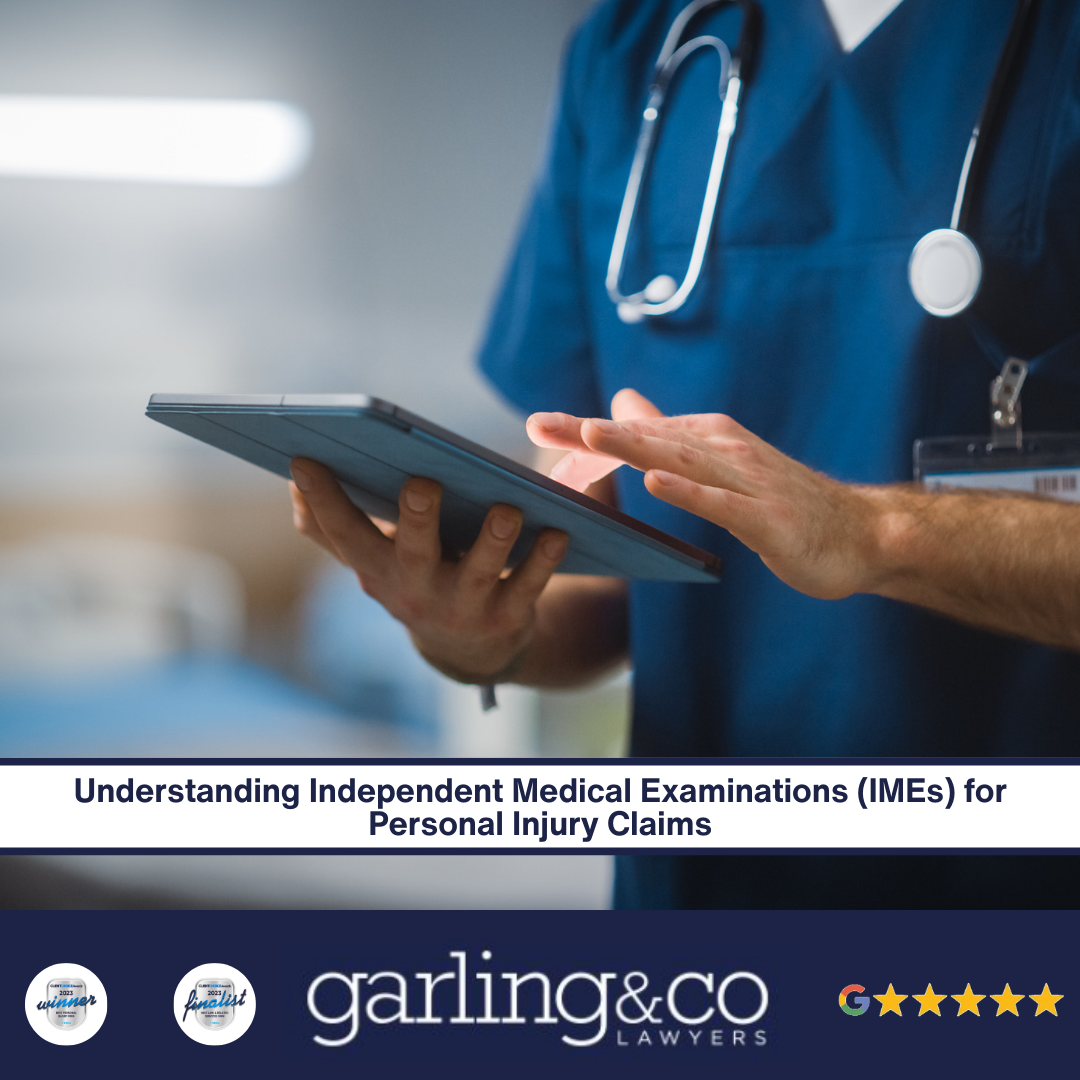
In this article, we will delve into the IME process, the role of the individual being examined, the significance of support persons, and what to expect during and after the appointment.
What is an IME?
- IME stands for Independent Medical Examination. It’s a type of medical appointment that’s part of the personal injury claim process.
- An IME can be arranged by various parties involved in your claim, such as your insurance company, the person you’re claiming against (the defendant), or your own lawyer.
- IMEs have a few different purposes:
-
- Evaluating your injuries and deciding what treatment you need.
- Checking your progress in recovering and getting back to work.
- Working out how much compensation you’re entitled to and what you might need in the future because of your injuries.
The IME Process
- The person or organization requesting the IME is known as the “referrer”. They choose a doctor who specialises in your type of injury to perform the examination.
- In worker’s compensation claims, you get to choose your doctor from a list of three.
- You’ll be given at least 10 working days’ notice before your appointment, and it will be arranged at a time that’s convenient for you.
- You’ll receive all necessary details about the appointment, such as the time, location, and the name of the doctor you’ll be seeing.
Your Role in the IME
- Confirm your appointment as soon as you can. If you can’t attend for any reason, you’ll need to tell the referrer why.
- If you have specific needs (like an interpreter or a support person), let the referrer know as soon as you can.
- Make sure to bring all medical reports or images (like x-ray or MRI) to your appointment.
- Wear comfortable clothes that are easy to remove for the physical examination.
- If you need help with travel or accommodation costs, tell the referrer immediately.
The Role of a Support Person
- You might want to bring a friend or family member to support you during your appointment.
- You’ll need to inform the doctor and receptionist if you’re bringing someone along.
- Remember, this person can’t answer questions or comment on your behalf during the examination.
What Happens During the Appointment?
- The doctor will review all the documents provided by the referrer.
- They’ll then perform a physical examination and ask you questions about your medical history and your injury.
- They must conduct the examination professionally and respectfully.
After the Appointment
- The doctor will write a report based on the examination and send it to the referrer.
- You can get a copy of this report if it’s used to dispute your claim or alter your compensation.
If There’s a Problem
- If you’re uncomfortable or unhappy during the examination, let the doctor know right away.
- If the issue isn’t resolved, you can raise a complaint with the referrer or your lawyer.
- If your claim is related to worker’s compensation or a motor vehicle accident, you can also complain to the Independent Review Office or the SIRA customer service centre.
Remember, the purpose of the IME is not to give you medical advice or treatment. It’s to provide an independent opinion about your injury for the claim process.












